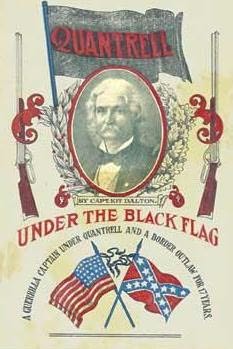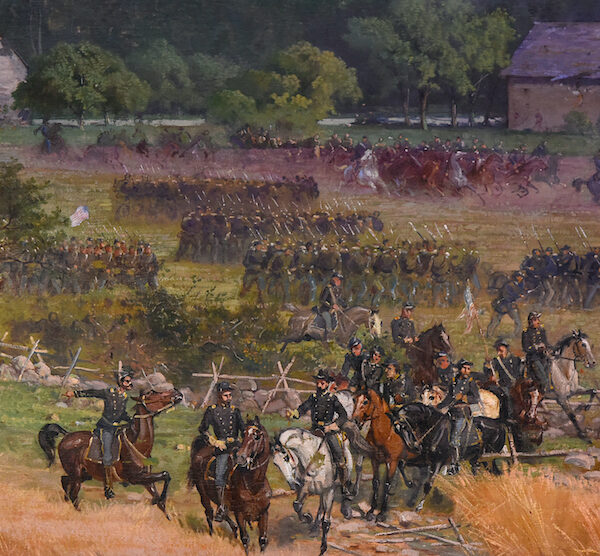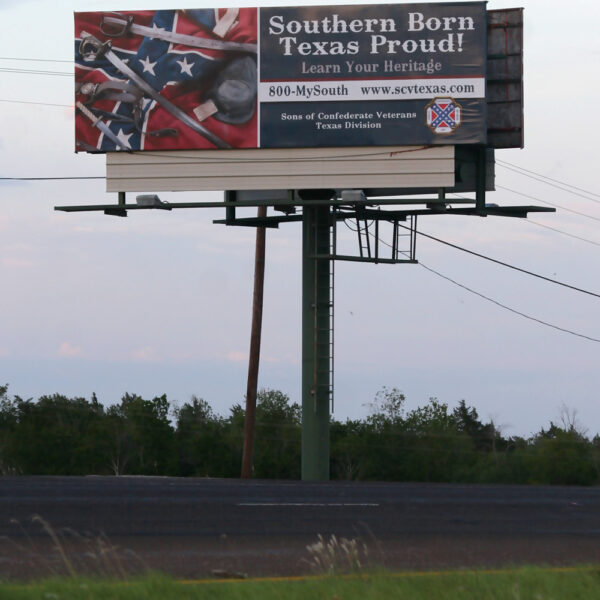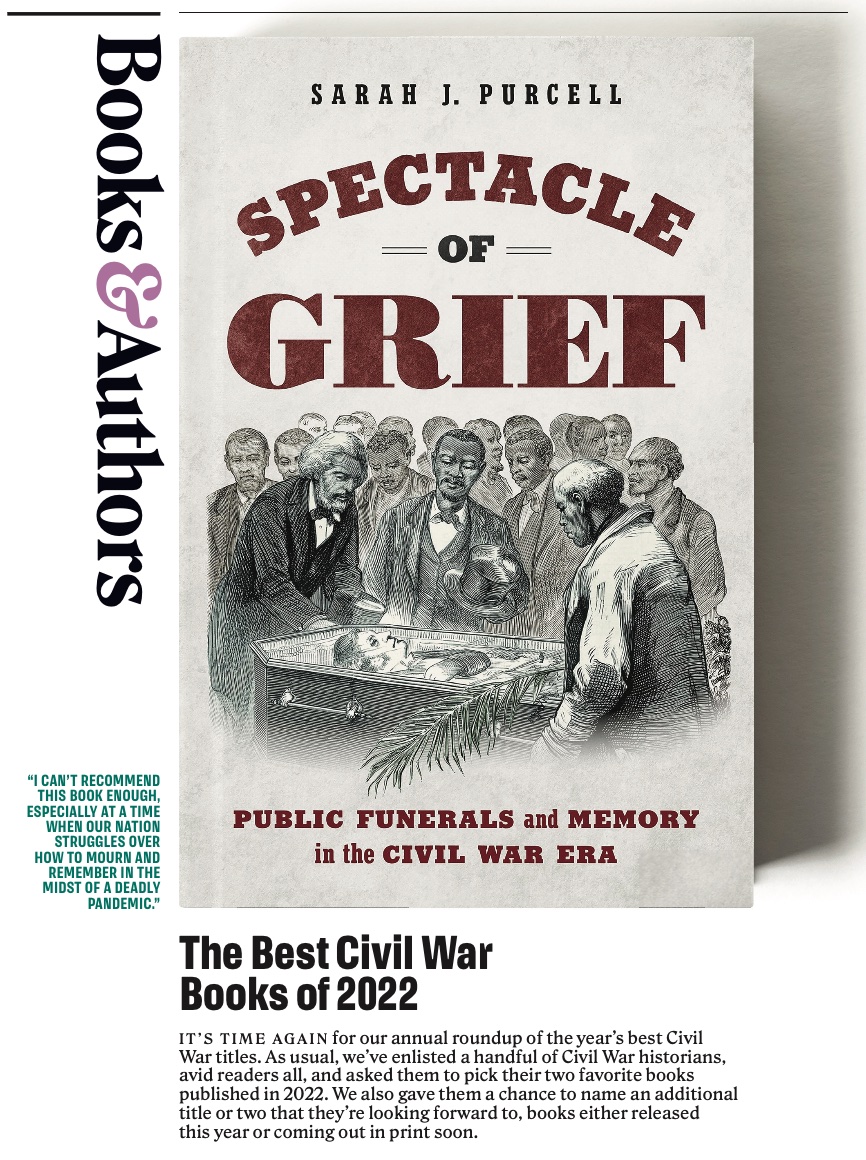 The Books & Authors section of our Winter 2022 issue contains our annual roundup of the year’s best Civil War titles. As usual, we’ve enlisted a handful of Civil War historians, avid readers all, and asked them to pick their two favorite books published in 2022. Below are their selections. We also gave them a chance to name an additional title or two that they’re looking forward to, books either released this year or coming out in print soon. You can find those picks in the issue. Cecily Zander
The Books & Authors section of our Winter 2022 issue contains our annual roundup of the year’s best Civil War titles. As usual, we’ve enlisted a handful of Civil War historians, avid readers all, and asked them to pick their two favorite books published in 2022. Below are their selections. We also gave them a chance to name an additional title or two that they’re looking forward to, books either released this year or coming out in print soon. You can find those picks in the issue. Cecily Zander
Top Pick: Clayton J. Butler’s True Blue: White Unionists in the Deep South During the Civil War and Reconstruction(LSU Press) transforms what we know about the cohort of white southerners who refused to accept secession. The people uncovered by Butler were not merely opposed to the Confederacy, they backed their ideology with action—striking
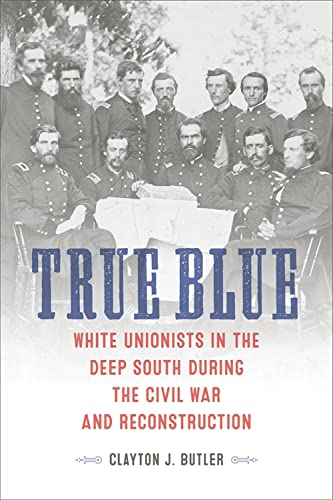
out from Louisiana, Alabama, and Tennessee for Union army camps, where they donned blue uniforms and fought to preserve the nation. Butler’s narrative is compelling and written with verve. Of note is his chapter on the Tennesseans of Bradford’s Battalion at Fort Pillow. Though the massacre of United States Colored Troops by the Confederate cavalry under Nathan Bedford Forrest is well known, Butler recovers the story of white Unionists at the fort who were targeted for being “race traitors.” It may be Butler’s work on Reconstruction, however, that makes True Blue deserving of the crown for 2022’s best Civil War book. In investigating how and why Reconstruction failed to enact the transformative political changes longed for by the Radical, abolitionist element in the North, Butler shows that many of the white southern men who had picked up rifles to fight for the Union were not willing to fight with their vote for black civil rights, especially when faced with coordinated violence and intimidation by former Confederates. As the latest entry in a growing literature on Union and its meaning in the Civil War era, True Blue adds a great deal to the rich story of America’s transformational conflict.
Honorable Mention: David K. Thomson’s Bonds of War: How Civil War Financial Agents Sold the World on the Union(UNC Press) offers the rollicking story of Union financier Jay Cooke and his agents’ efforts to sell the Union war. Economic history can strike fear into even the most courageous readers, but Thomson alleviates any trepidation about facts, figures, and accounting—and rewards readers with much to consider in this extensively researched volume. Thomson rightly notes that for all that historians have written about the conflict, few have asked how the United States financed the Civil War. This book fills the gap, presenting not only the mechanics of selling federal bonds, but also the political and social arguments made by the agents who asked Americans to lend their dollars and cents to the war effort. Thomson shows how the selling of bonds got Americans from all walks of life invested, literally and figuratively, in the war effort. Readers cannot help but close this volume with a new appreciation for the behind-the-scenes financial work that made Union victory possible.
Jennifer M. Murray
Top Pick: Elizabeth D. Leonard’s Benjamin Franklin Butler: A Noisy, Fearless Life (UNC Press) offers a fresh evaluation of one of
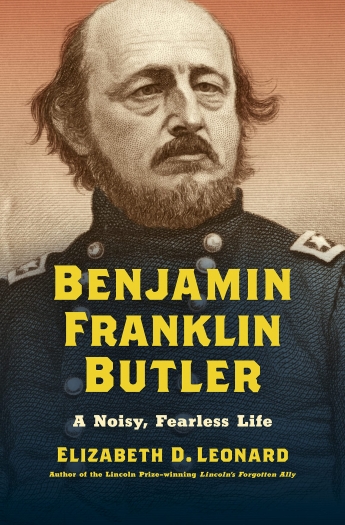
the most controversial and maligned figures of the Civil War and Reconstruction. Butler graduated from Colby College (then Waterville) in 1838, the institution where Leonard taught for over three decades. Critical depictions of Butler dominated generations of Civil War historiography, with many of those interpretations rooted in Lost Cause ideology and propaganda. Leonard challenges judgments of Butler as militarily incompetent and morally corrupt, each a perception cultivated during Butler’s seven-month oversight of Federal occupation in New Orleans in 1862. White southerners’ widespread antipathy toward him took the form of various nicknames—“Beast” and “Damnedest Yankee” among the most popular. But, in perhaps Leonard’s greatest contribution, she chronicles the evolution of Butler’s racial sensibilities. Shaped by his own wartime interactions with slaves and contrabands, experiences added to in New Orleans, Butler emerged as one of the nation’s leading political voices for African-American freedom and civil rights. Leonard admits to being sympathetic to Butler (a susceptibility among biographers), yet she does not refrain from highlighting his shortcomings and flaws. Indeed, Leonard’s work reminds us of the importance of biography and encourages a reevaluation of Butler’s enduring pejorative, “Beast.”
Honorable Mention: While there is no shortage of books on the Overland Campaign or its individual battles, The Heart of Hell: The Soldiers’ Struggle for Spotsylvania’s Bloody Angle (UNC Press) by Jeffry D. Wert provides a particular and welcome perspective on the May 12, 1864, Federal offensive against the Confederate line at the Mule Shoe. Wert shifts the interpretive lens away from Ulysses S. Grant, George G. Meade, and Robert E. Lee and toward the rank-and-file soldiers in the Army of the Potomac and the Army of Northern Virginia. The Heart of Hell is a template of how to tell a familiar story in an engaging way, while privileging the voices and experiences of the men consumed by 24 hours of combat on one of the Civil War’s most iconic—and bloody—landscapes.
Brian Matthew Jordan
Top Pick: Civil War scholars have produced a steady stream of memory studies in the last two decades. Many of these books have affirmed the findings of David Blight’s Race and Reunion: The Civil War in American Memory (2001). A more recent body of scholarship has interrogated various obstacles to reconciliation: wounded veterans, grieving widows, and rows of graves. In A Spectacle of Grief: Public Funerals and Memory in the Civil War Era (UNC Press), Sarah J. Purcell deftly and persuasively moves
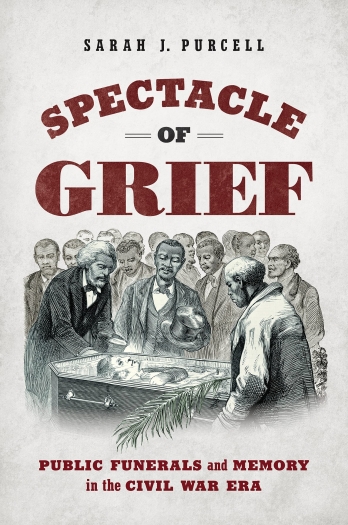
the field beyond stale debates about the extent to which reconciliation triumphed in national memory. Identifying public funerals as a key battleground in the contest to define the meaning and legacy of the conflict, her crisply written and well-researched book demonstrates how different strands of Civil War memory could combine and coexist. Carefully analyzing the public obsequies for Henry Clay, Charles Sumner, Elmer Ellsworth, Thomas J. Jackson, Robert E. Lee, and other luminaries of the Civil War era, she shows how Americans—befitting the paradoxes of American nationalism—simultaneously held on to contradictory visions of the war. This is a richly textured, highly original yet accessible study that merits wide readership.
Honorable Mention: Joyce Dyer’s Pursuing John Brown: On the Trail of a Radical Abolitionist (University of Akron Press) is a compulsively readable reckoning with the uneasy questions raised by the abolitionist who raided Harpers Ferry. In a genre-bending work that bears some resemblance to Tony Horwitz’s Confederates in the Attic (1998), the author rummages research collections, squints to read lichened headstones, attends lectures and sesquicentennial commemorations, and contemplates the killings at Pottawatomie Creek. It’s an unforgettable encounter with the meaning of race and violence in our democracy.
Gerald J. Prokopowicz
Top Pick: Rarely does a biographer so completely overhaul her subject’s reputation as Elizabeth D. Leonard has done in Benjamin Franklin Butler. Like the rarely published image on the book’s cover, she offers a surprisingly attractive version of “Beast” Butler. Her research exposes the traditional caricature of an incompetent, corrupt, spoon stealer (an image that has long dominated both public and scholarly perceptions of Butler) as a relic of Lost Cause historical writing. In its place, she provides a detailed portrait of a remarkably effective military administrator and a lifelong champion of the underdog. Butler’s transition from Breckinridge
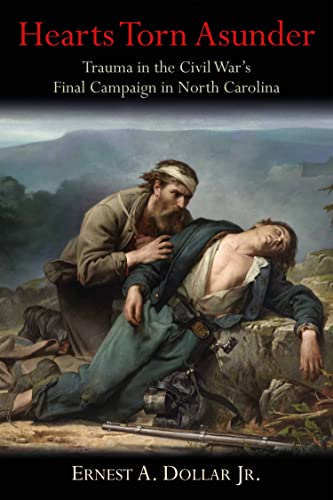
Democrat in 1860 to wartime Republican emerges as a reflection of genuine sympathy for the enslaved. And then comes his postwar conversion to Greenback Party presidential candidate as a result of the Republican shift away from defending the formerly enslaved, to whose cause Butler remained committed. Some people outside of academia use the term “revisionism” as an insult, but without it, we’d all still be stuck with the myths of the 19th century. In setting the record straight on Butler, Leonard has crafted an example of historical revisionism at its best.
Honorable Mention: Ernest Dollar, with Hearts Torn Asunder: Trauma in the Civil War’s Final Campaign in North Carolina (Savas Beatie), does for North Carolina in 1865 what Carolina Janney did for western Virginia in Ends of War: The Unfinished Fight of Lee’s Army after Appomattox (2021), but on a broader canvas. Dollar’s work shows the confusion, suffering, and misery of the last month of the war, not just for the soldiers of the Confederacy, but also for their opponents, and even more, for the helpless white and black civilians caught in the vortex of Joseph E. Johnston’s and William T. Sherman’s armies. He captures the wide range of emotions, from joy to despair, that characterized the ending of the war, the assassination of the president, the impending loss of comradeship, the ambiguous dawn of freedom, and more. This is a moving and important book.
Kevin M. Levin
Top Pick: Sarah Purcell’s Spectacle of Grief is a fascinating study that explores the culture of memory and mourning practices surrounding some of the most notable Americans, from the antebellum era through the postwar period. Her study begins with Henry Clay, whose death in 1852 came at a time of increased sectional tensions and doubts about the nation’s future. Many Americans used the occasion to promote national unity while abolitionists pushed their own uncompromising position on the evils of slavery. Purcell uses the deaths of Elmer Ellsworth and Confederate general Thomas J. Jackson to highlight how the war promoted a distinct American and Confederate identity and how their deaths anticipated the postwar battle over Civil War memory. The final three chapters, which explore the deaths of Confederate generals Robert E. Lee and Joseph Johnston, George Peabody, Charles Sumner,
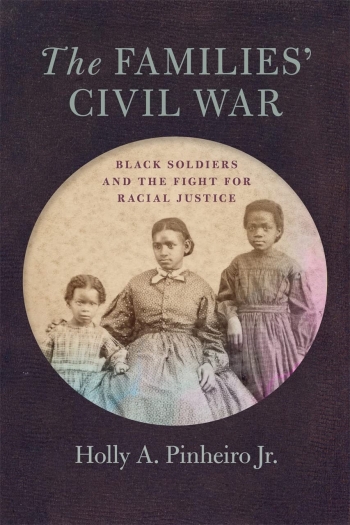
Frederick Douglass, and Winnie Davis, challenge our tendency to analyze postwar battles over the legacy and meaning of the war as reflecting distinct and mutually exclusive narratives of Civil War memory. Purcell reminds us that Lost Cause, reconciliationist, and emancipationist narratives often overlapped one another. White southerners could both mourn Lee as a Lost Cause icon and claim their place as loyal Americans while Douglass’ funerals in Washington, D.C., and Rochester, New York, evoked a powerful emancipationist memory as well as a sharp white supremacist backlash. I can’t recommend this book enough, especially at a time when our nation struggles over how to mourn and remember in the midst of a deadly pandemic.
Honorable Mention: The past few decades have produced a wave of studies focusing on the lives of black Civil War soldiers. We know a good deal about their experiences on the battlefield and the dangers they faced at the hands of vengeful Confederates, but we are still lacking in studies of their families back home. Regardless of race, families struggled in numerous ways as fathers, sons, and brothers served in faraway places, but as Holly A. Pinheiro Jr. demonstrates in The Families’ Civil War: Black Soldiers and the Fight for Racial Justice (University of Georgia Press), free black families in the North faced distinct challenges rooted in decades of racial discrimination, violence, and disfranchisement. The focus on native-born, African-American Philadelphians and their families provides sharp interpretations of both challenges faced during the war and the hopes and dreams these families invested in a reunited nation.
BEST BOOKS 2022 CONTRIBUTORS
Brian Matthew Jordan is associate professor of Civil War History and chairperson of the Department of History at Sam Houston State University in Huntsville, Texas. He is the author or editor of six books on the Civil War era, including Marching Home: Union Veterans and Their Unending Civil War(2015), which was a Pulitzer Prize finalist. In the spring, the University of Georgia Press will publish his latest title, Final Resting Places: Reflections on the Meaning of Civil War Graves (co-edited with Jonathan W. White).
Kevin M. Levin is a historian and educator based in Boston, Massachusetts. He is the author of Searching for Black Confederates: The Civil War’s Most Persistent Myth(2019) and is currently working on a biography of Robert Gould Shaw for the University of North Carolina Press.
Jennifer M. Murray is a military historian with a specialization in the Civil War in the Department of History at Oklahoma State University. She is the author of On a Great Battlefield: The Making, Management, and Memory of Gettysburg National Military Park, 1933–2013(2014) and is currently working on a full-length biography of George G. Meade, tentatively titled Meade at War.
Gerald J. Prokopowicz is a professor of history at East Carolina University in Greenville, North Carolina, and host of the podcast Civil War Talk Radio.
Cecily Zander is a postdoctoral fellow at the Center for Presidential History at Southern Methodist University in Dallas, Texas. She is at work on a book tentatively titled Republicans and Regulars in the Civil War Era: The Politics of Anti-Militarism and Western Expansion and has published several essays and book chapters on Civil War memory and the Civil War West.

